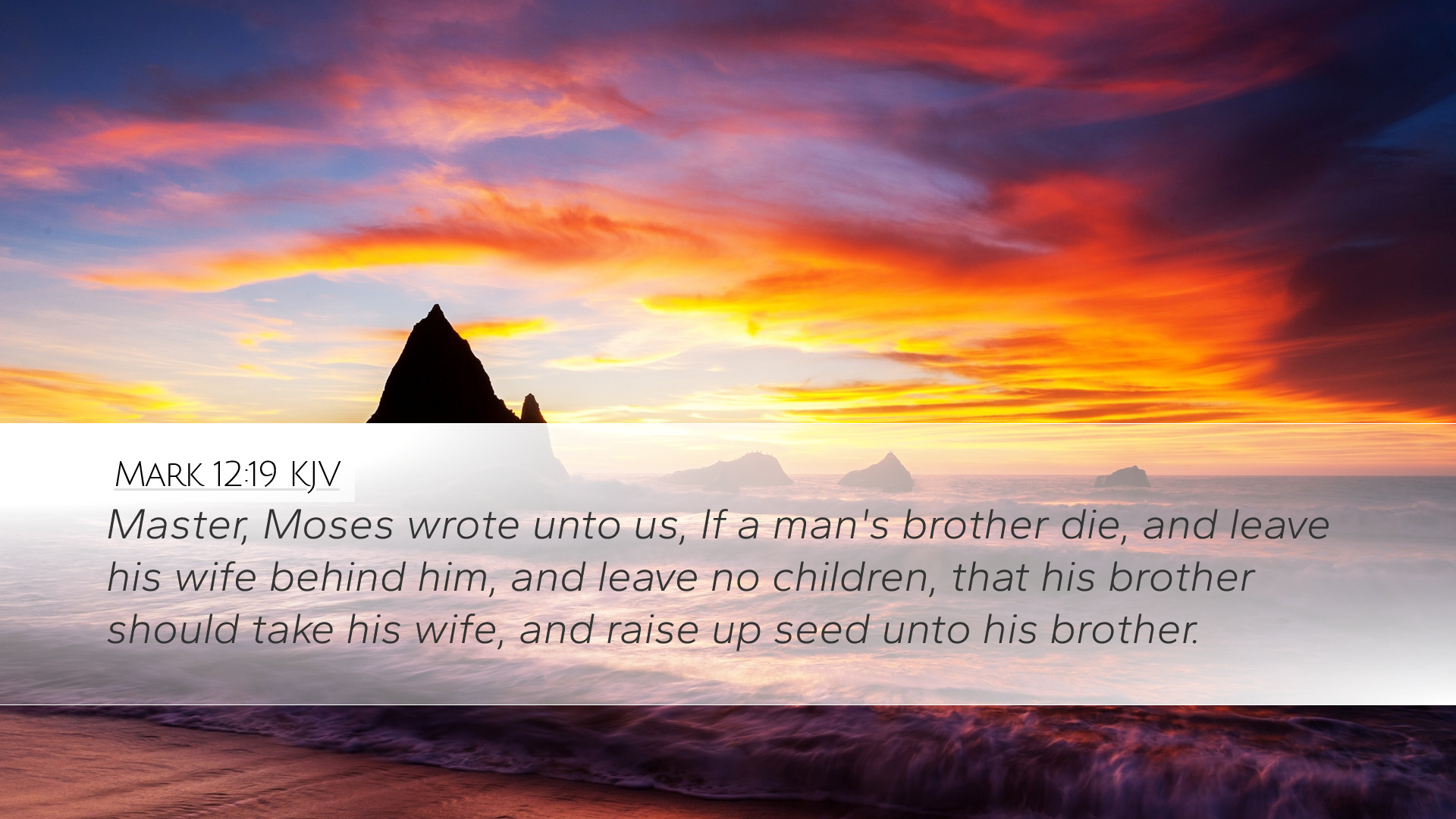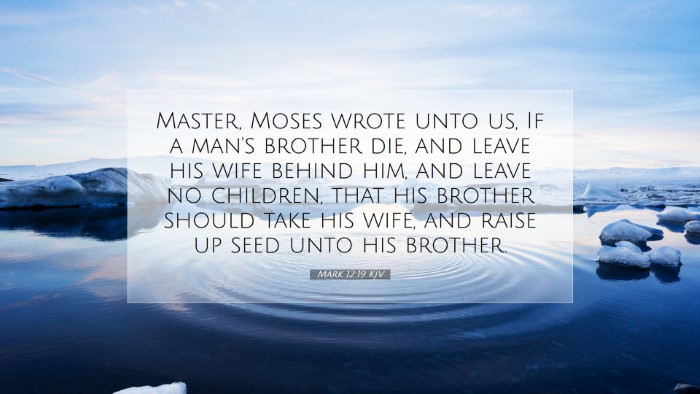Commentary on Mark 12:19
Verse: "Master, Moses wrote unto us, If a man's brother die, and leave his wife behind him, and leave no children, that his brother should take his wife, and raise up seed unto his brother." (Mark 12:19, KJV)
Contextual Analysis
This verse is part of a larger discourse where the Sadducees, a sect of Jewish leaders who do not believe in the resurrection, approach Jesus to challenge Him with a question about the law of levirate marriage as prescribed in Deuteronomy 25:5-10. They seek to demonstrate the absurdity they perceive in the concept of resurrection by presenting a hypothetical case based on this law.
The Levirate Law Explained
The levirate law was instituted as a means of preserving family lineage and protecting the social status of widows. It mandated that a brother of a deceased man should marry the widow to ensure that the name and inheritance of the deceased were continued. The Sadducees, in referencing this practice, aim to question the logic of resurrection by outlining a scenario where a woman marries seven brothers successively, all of whom die without producing offspring.
Insights from Public Domain Commentaries
Matthew Henry's Commentary
Matthew Henry emphasizes the persistent unbelief of the Sadducees and their inquiry as a reflection of their misunderstanding of scriptural truths. He notes that their argument is drawn from the letter of the law while missing the spirit of life that the law embodies. Henry reflects on the implications of levirate marriages and the necessity of the brother's duty, drawing attention to how this legalistic approach leads to their misconceptions about the resurrection and eternal life.
Albert Barnes' Notes on the Bible
Albert Barnes elucidates the significance of the question posed by the Sadducees. He posits that their query illustrates a strategic attempt to entrap Jesus by using the law that they claimed to uphold. He highlights the absurdity inherent in their scenario and the implications of their reasoning. Barnes also underscores the importance of resurrection in Christian doctrine, reinforcing that understanding the resurrection is fundamental to grasping the fullness of God’s redemptive plan.
Adam Clarke's Commentary
Adam Clarke provides an extensive examination of the levirate marriage law, asserting that it stems from a deep-seated concern for family integrity within ancient Israelite society. He critiques the Sadducees’ perspective, noting their practical skepticism towards the power of God and the reality of a spiritual resurrection. Clarke argues that their hypothetical scenario does not account for the divine nature of eternal life, which transcends earthly limitations and family structures.
Theological Implications
This verse challenges both Jewish legalism and contemporary interpretations of scripture that can lead to a hollow understanding of resurrection. The levirate law, while rooted in cultural practice, serves to illustrate larger theological questions about eternal life, the nature of God, and the resurrection of the dead.
Modern Application
- Understanding God's Kingdom: As pastors and theologians engage with Mark 12:19, it serves to remind them of the kingdom of God, which is not constrained by human legalistic interpretations.
- Addressing Doubt and Skepticism: This scripture provides a framework for addressing doubts about the resurrection and offers a platform to affirm the reality of life after death, which is central to Christian faith.
- Encouraging a Deeper Faith: For students and scholars, the exploration of this passage encourages a deeper examination of their faith in God's power and the promises He gives regarding eternal life.
Conclusion
Mark 12:19 serves as a profound illustration of the intersection between law, culture, and theology. The Sadducees' approach is a call to faithful interpretation of scripture that recognizes the deeper truths beyond the surface. As students, pastors, and theologians reflect upon this passage, they are invited to explore the fullness of what resurrection means within the context of God's overarching narrative of redemption.


